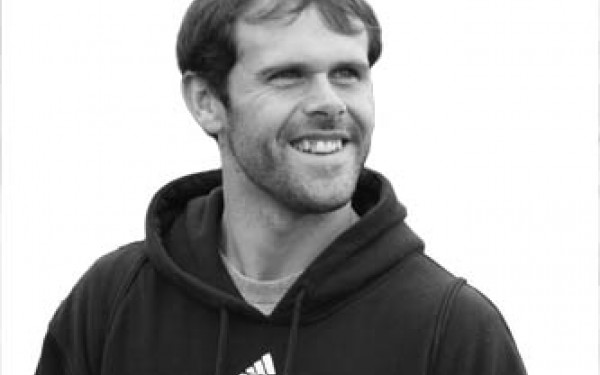The Longest Dream In The World
Concordia Student Jakub Muda Prepares For Eight-Month Expedition Across Canada
In February 2014, Jakub Muda, a student at Concordia University, was looking to embark on a grand adventure. By the time you read this article, Muda will be preparing for an expedition that has been described as “the longest dream in the world.”
“I [was] looking for something a few years ago, to do something big in my life,” Muda told The Link. “I decided to do some kind of adventure, [something] that nobody had done before.”
On Jan. 15, Muda will begin an 8,000 km expedition across Canada, trekking from the city of Victoria, British Columbia to finish about eight months later in Cape Spear, Newfoundland, the most eastern point of the country.
Muda’s reasoning for the journey is to bring awareness to technological development, as well as the fields of chemistry and science. During the expedition, he will be raising money through online donations to complete his majors in chemistry and mathematics at Concordia, in order to fulfill his dreams of working for the Canadian Space Agency and going on a spaceflight.
In preparation for his journey, Muda went through a long and demanding training regimen, both physical and mental, that began last February. The 21-year-old student met with a psychologist at Concordia for four months, while also acclimatizing himself to the cold conditions.
“I was running with equipment, with my backpack. It’s really heavy,” said Muda. “I was going out of Montreal for a few days with all the equipment to [train]. I was walking a lot of kilometres, more than one hundred.”
“I like the outdoors,” he continued. “But in Canada, it’s extremely cold, extremely windy, so that’s why I had to repeat everything and I have to be prepared [mentally] for the worst.”
Muda also worked with nutritionist Thea Demmers, who teaches healthy eating classes at Concordia’s PERFORM Centre at Loyola Campus. The two met on two occasions where Demmers helped to evaluate Muda’s progress. Demmers planned strategies and created a food menu for the student to use during his expedition.
“We were preparing all kinds of food, adjusting the amount of calories, the amount of proteins,” said Muda. “Everything must be perfect.”
Muda will be stopping at different hotels during his journey, meaning he will have the chance to warm up and eat hotel food, but otherwise he’ll have to survive on snacks and freeze-dried food during his trek, a necessity for hungry backpackers.
Some of Muda’s frozen foods contain up to 500 calories in 100 grams of food. However, Demmers has instilled in Muda that he needs more than frozen food to nourish himself.
“In terms of food group portions he can’t just have any type of protein, mostly fried and frozen food, to have a balanced diet,” said Demmers.
Demmers is confident that Muda is up to the challenge.
“It was a great experience [working with Muda]. He’s very courageous, very ambitious and very eager to learn and is trying be in the best shape as possible.”
Muda doesn’t deny that he had his doubts about the expedition during his training, but he found inspiration in someone else who attempted a similar journey—Terry Fox, who attempted a countrywide run with a prosthetic leg to raise money for cancer awareness. Muda even pays tribute to Terry Fox on his website, www.8000kmacrosscanada.com.
“Terry Fox was the biggest [inspiration],” Muda said. “Raising money for cancer, running basically on one leg, it’s tremendous, it’s amazing.
“[He] basically inspired me to do something great, and I decided that I needed to do this marathon.”
Through his website, Muda has gained a wide array of sponsors and supporters, including Polish explorer Marek Kaminski, who holds the Guinness World Record for being one of the first people to walk from the North to the South Pole. Muda will document his journey through videos and posts on his website, as well as Twitter, Facebook, YouTube, and Google+.
The student also plans on creating a documentary and writing a book composed of his journal entries from the journey once it has been completed.
“200-something days, everyday. One page [a day],” said Muda. “It [will be a] pretty nice book.”

_900_539_90.jpg)

__thumb_600_375_90_s_c1.JPG)


